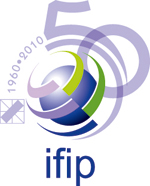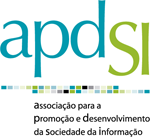Tutorials
| TUT.106: Sketching Interactive Systems with Sketchify Monday, 5th (Morning), room P1 Organizer: Zeljko Obrenovic (Eindhoven University of Technlogy (TU/e)) Abstract: Sketching is at the heart of design and creativity, an omnipresent element of any disciplined activity of design. In this tutorial we will summarize many of the existing studies of sketching, and emphasize its role in supporting creativity. We will look at how sketching aids in reflection and conversation, and supports designers’ memory and cognition. We will discuss the relation of sketching to prototyping and engineering, and present Sketchify, a software tools for sketching beyond paper and pencil. We will cover various techniques that can be used to extend sketching to other forms than simple creation of a pencil trace on paper. |
| TUT.111: Activity-Centered Interaction Design: A Model-Driven Approach Monday, 5th (All day), room P3 Organizer: Larry Constantine (Madeira Interactive Technologies Institute; University of Madeira) Abstract: This full-day tutorial covers a systematic, model-driven, activity-centered interaction design approach grounded in activity theory. The approach is based on novel techniques for modeling human activity developed through project archeology to focus on aspects of activities most salient to interaction design. Simple, formalized models of activity context, activity participation, and activity theory capture and organize salient aspects of the activities within which product or service use are embedded. This model-driven process facilitates traceability and links user requirements, interaction design, and software engineering. |
| TUT.115: User Experience Evaluation – Which Method to Choose? Tuesday, 6th (Afternoon), room P3 Organizer: Virpi Roto (University of Helsinki) Arnold Vermeeren (Delft University of Technology) Kaisa Väänänen-Vainio-Mattila (Tampere University of Technology) Effie Law (University of Leicester) Abstract: User experience has many dimensions and therefore, it is tricky to evaluate it. When the goal of user experience evaluation is to investigate how people feel about using an interactive system, the traditional usability methods are hardly applicable. In this tutorial, we introduce a set of 78 user experience evaluation methods that we have been collecting from the user experience community 2008-2010. We give both an overview of the different types of methods and examine a selected set of methods in detail. |
| TUT.118: Context-Aware Adaptation of User Interfaces Monday, 5th (All day), room P9 Organizer: Jean Vanderdonckt (Universite Catholique de Louvain) Vivian Genaro Motti (Universite Catholique de Louvain) Abstract: Efficient adaptation aims at ensuring that a user interface is adapted to a user’s task according to the context of use, since the end user is carrying out a task with one or several computing platforms in a physical environment. This tutorial presents key concepts of adaptation: principles that guide it, relevant context information and how to consider it, dimensions and abstraction levels subject to adaptation, as well as, languages, methods and techniques used in this domain. This tutorial aims at teaching major aspects to be considered for adaptation of user interfaces in general and concerning the context of use in particular, including the end user (or several of them, as in multi-user interfaces), the platform (or several of them, as in multi-device environments), and the physical environment (or several of them, as in multi-location systems). |
| TUT.120: User Experience Evaluation in Entertainment and Games (*) Monday, 5th (Afternoon), room P1 Organizer: Regina Bernhaupt (IRIT/Groupe ICS) Abstract: This tutorial comprehensively covers important user experience (UX) evaluation methods and opportunities and challenges of UX evaluation in the area of entertainment and games. The course is an ideal forum for attendees to gain insight into state-of-the art user experience evaluation methods, going way-beyond standard usability and user experience evaluation approaches in area of human-computer interaction. It surveys and assesses the efforts of user experience evaluation of the gaming and human computer interaction communities during the last 10 years. Note: (*) I hereby declare that I take sole responsibility for making materials available to all participants registered to attend the tutorial User Experience Evaluation in Entertainment and Games at INTERACT 2011. Regina Bernhaupt. |
| TUT.132: User Interface Design, Adaptation, and Migration for Multi-Device Environments Tuesday, 6th (Morning), room P3 Organizer: Fabio Paterno (CNR-ISTI) Abstract: This tutorial aims to help user interface designers and developers to understand the issues involved in multi-device interactive applications, which can be accessed through both mobile and stationary devices even exploiting different interaction modalities (graphical, vocal, gesture, …). It will provide a discussion of the possible solutions in terms of concepts, techniques, languages, and tools, with particular attention to Web environments. The tutorial will deal with the various aspects to consider in order to adapt the user interface according to the interaction resources available, also discussing what results can be obtained through model-based approaches when multi-device interfaces are considered. It will consider how to address such issues both when authoring multi-device interfaces and when user interfaces for different devices are dynamically adapted and can even migrate seamlessly across them to follow the mobile user. Thus, it will discuss task continuity across multiple devices in distributed and migratory interfaces and related usability issues. |
SUPPORTERS

IMPORTANT DATES
Conference
September 7th to 9th, 2011
Workshops and Tutorials
September 5th and 6th, 2011
Early-bird registration
July 15th, 2011
Short paper submission
April 7th, 2011
Full paper submission
January 24th, 2011 (paper)
January 10th, 2011 (abstract)












